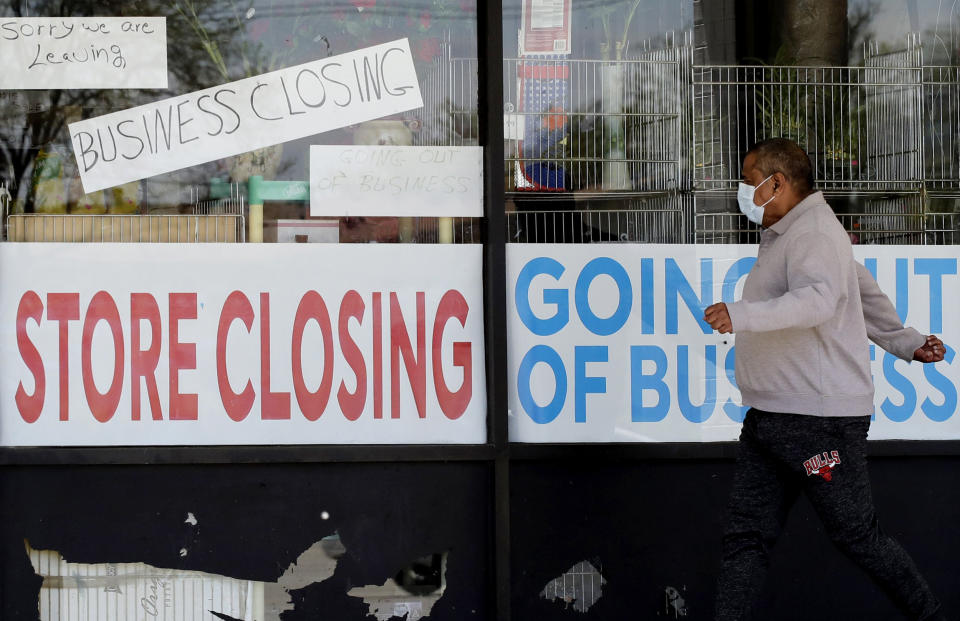How entrepreneurs are working to weather the economic storm of coronavirus
Eric Wei, a former product manager at Instagram, used to see Will Kim every day, almost all day.
Wei and Kim, a former venture capitalist, started working together in San Francisco in July 2019 to start Karat, a credit card company for digital creators and influencers. Then the coronavirus pandemic hit.
"We know each other really well, but it was hard not seeing each other in months while trying to build a company," said Wei, whose asthma has meant he's taken extra precautions to avoid the virus.
The duo were able to launch Karat in June, but as social distancing guidelines remain, Wei and Kim will be forced to scale up their business remotely. They're trying to see the upsides, such as embracing remote work, which will let them expand their pool of possible employees while limiting office costs.
Startups are known for needing to expect the unexpected and shift quickly, but the coronavirus pandemic has meant the tumultuous experience of entrepreneurship now involves trying to figure out how to operate in a business environment that can shift on a weekly basis.
But that can also mean a sliver of opportunity for the founders who are able to embrace the situation.
"We talk about remote work becoming the new normal, and for founders, that often means building an entire company without seeing each other in person," said Jason Stoffer, a partner at the consumer venture capital firm Maveron. "That can work with a small team but can be difficult when scaling a business."
The coronavirus pandemic has been brutal for the U.S. economy. The country is dealing with historic levels of joblessness and the largest economic contraction on record. The CEOs of major companies have warned of a "catastrophic" impact on small businesses.
Entrepreneurs, however, tend to be optimists by nature — as do their funders. Venture capital funding for early-stage start-ups, known as seed and angel investing, dipped from about $425 million in January to $300 million in February but has since recovered a bit to hold steady in the past few months at around $340 million, according to a data from the startup-tracking company Crunchbase.
But the entrepreneurs who spoke with NBC News detailed significant challenges that have forced them to take drastic action to keep their companies afloat.
Melanie Masarin had worked for the better part of a year to ready the launch of her nonalcoholic beverage company, Ghia, in the middle of March.
Then, just a few days before her drinks were set to be for sale in restaurants, COVID-19 lockdowns shuttered bars and eateries across the U.S. Before selling its first beverage, the company had to shift to a direct-to-consumer model, including creating an online store.
Stoffer said, "It's impossible to launch something that depends on physical connectivity right now, and there has been a massive shift to e-commerce among consumer startups."
Said Masarin: "We had to overcome what seemed like endless hurdles with sourcing, production, packaging, design and photography."
But she was able to pivot. Masarin said that in the weeks after her company launched on June 16, she has been able to sell several thousand bottles to consumers online.
Priya Mittal and Olivia Tulkoff, students at Brown University, faced a similar problem. They had hoped to launch fette, their recyclable party cups, at Brown on Earth Day in April and sell them to fraternities and sororities ahead of the coming school year.

After students were sent home in March, Mittal and Tulkoff pushed back their launch.
"It was definitely a setback, but it gave us more time to develop our brand and reconsider our business model," Tulkoff said.
With large gatherings banned, Mittal and Tulkoff needed to focus on individual buyers.
Mittal said: "Many people are living together in houses off-campus, and they will need cups. We're now trying to reach out to individuals at Brown who may want the cups rather than organizations who will not be allowed to host events."
The two created an online storefront for the cups, which they hope will replace Red Solo, and launched last week. On their first day, they got 50 requests for 15- and 30-packs of the cups.
Other startups have been forced to adapt to changing consumer needs. Nick Hobbs, a former project manager at Google, and Andrea Huey, a former senior software engineer at Google, were working on a news app, Brief, predicated on people's spending a lot of time on the go.
"Honestly, when the pandemic first hit, I was really worried," Hobbs said. "We'd planned on marketing ourselves as 'news for busy people,' and as it turns out, getting locked in your house frees up a ton of time."
But he and Huey found that users are now even more overwhelmed by the news. In response, they changed the functionality of the app.
"Rather than presenting the news in a short daily newsletter, we show you the most important news since you have come to the app last," Hobbs said. "So if you don't open it for two days, you won't be overwhelmed with information that may no longer be significant."
Download the NBC News app for breaking news and alerts
Mittal, Tulkoff, Hobbs and Masarin see the changes to their companies as permanent after the pandemic subsides.
Masarin hopes to launch Ghia in restaurants but will keep its e-commerce store live because of its success.
"We had a 10 percent repeat purchase rate in the first 10 days alone," Masarin said.
Hobbs and Huey also plan to stick with the model they have created.
"We want to make sure every word on the app is worth reading," Hobbs said.

